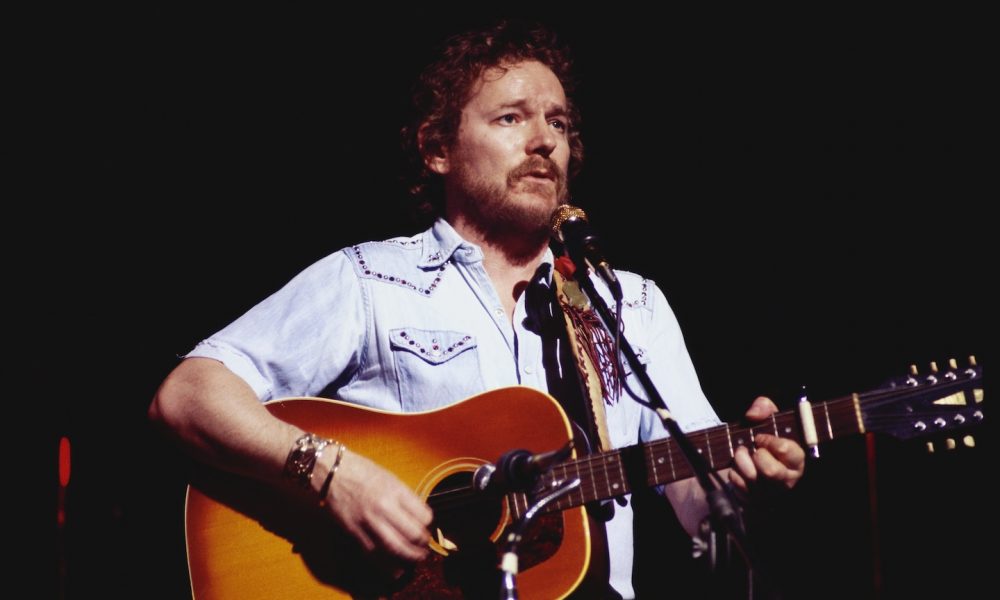Gordon Lightfoot, Peerless Original Among Singer-Songwriters, Dies At 84
His friend and contemporary Bob Dylan once said that he had never heard a Gordon Lightfoot song he didn’t like.

Gordon Lightfoot, one of Canada’s greatest songwriters and a multi-platinum, internationally-admired artist with a career spanning well over 60 years, has died at the age of 84.
He died Monday night at Sunnybrook Hospital in Toronto and his passing was confirmed on his official social channels and by his publicist, Victoria Lord, and B.C. Fiedler, his longtime Canadian concert promoter.
Canadian Prime Minister Justin Trudeau led tributes by posting on social media: “We have lost one of our greatest singer-songwriters. Gordon Lightfoot captured our country’s spirit in his music – and in doing so, he helped shape Canada’s soundscape. May his music continue to inspire future generations, and may his legacy live on forever. To his family, friends, and many fans across the country and around the world: I’m keeping you in my thoughts at this difficult time.”
Lightfoot was the epitome of the articulate storyteller in song, with an accompanying gift for unforgettable melodies that remained rooted in acoustic folk, but crossed into the rock world with ease. Bob Dylan once said that he didn’t think he had ever heard a Gordon Lightfoot song he didn’t like, and described him as a “mentor.”
And what songs they were: from early efforts such as “Ribbon of Darkness” and “Did She Mention My Name,” during a four studio album-stay on United Artists, to the signatures of his Warner Reprise years, such as “Early Morning Rain,” “If You Could Read My Mind,” “Sundown,” “The Wreck of the Edmund Fitzgerald,” “Daylight Katy,” “The Circle Is Small,” and so many more.
Lightfoot’s place in the pantheon of Canadian art cannot be overstated, and he commanded a place of undisputed prominence from his emergence there in the mid-1960s until his death. Beyond those borders, his achievements were huge, especially in the US, where he registered three platinum albums (one of them, the Gord’s Gold compilation, going double platinum) and topped the Billboard charts with both the “Sundown” single and the album of the same name.
Performing was in his blood, and true to his troubadour spirit, Lightfoot continued to record and, particularly, to tour exhaustively, and had tour dates booked for the spring of 2023 before he was taken ill. Shows in later years, including on visits to the UK, may have revealed a diminished voice, but his songcraft remained entirely intact.
He was born in Orillia, Ontario on November 17, 1938, and was performing publicly from grade four, and in church choirs. By 12, he was on the stage of Massey Hall in Toronto for the first of many visits, and taught himself folk guitar, piano, and other instruments, spending two years in Los Angeles from 1958 to study at Westlake College of Music.
Returning home, and displaying the influence of folk staples such as Pete Seeger and Ian & Sylvia, he sang as part of the Singin’ Swingin’ Eight, on TV’s Country Hoedown. He had his first local radio hit in 1962 with “(Remember Me) I’m the One,” recorded in Nashville.
On those sessions, he remembered in the liner notes for the 1999 boxed set Songbook, “I came out of the sessions sounding like a cross between Jim Reeves and Pat Boone. Deciding not to follow that route, I chose to gamble on the folk revival of the early ’60s and began working in bars and coffeehouses.
“By 1966 I had found a niche in the singer/songwriter category. I had also found a production company in New York to record and represent me. I then pursued a career in live and recorded musical performances, which has carried me through, right up until the present day.”
Lightfoot was getting himself noticed on many different platforms, including the UK on the BBC’s sadly long-lost Country and Western Show. His first LP, Lightfoot!, arrived in 1966, on which his desirability as a songwriter was already on display: it contained his version of “Ribbon of Darkness,” which Marty Robbins had turned into a country No.1 the year before, and his original “Early Morning Rain,” later covered by Elvis Presley among others. As this uDiscover Music series on his United Artist albums shows, he was hugely in demand not just for his own recordings, but for his apparently limitless songbook of superior, vividly-written narratives and plaintive melodies.
Late in 1969, Lightfoot was signed by Warner Brothers to the Reprise label, opening his account with Sit Down Young Stranger, produced by Lenny Waronker and Joe Wissert. It was markedly more orchestrated than his earlier efforts, and included one of his most-loved songs, the aching “If You Could Read My Mind,” a Canadian No.1, Hot 100 Top 5, Easy Listening No.1, and a hit in several other countries, notably the UK and Australia. The album reached No.12 in the US and stayed 37 weeks on the chart.
On 1971’s Summer Side Of Life, Lightfoot “went electric,” although the LP was somewhat less durable on the bestsellers; he truly hit paydirt three records later with Sundown, now a favorite of both AM and FM programmers. Cold On The Shoulder was another US Top 10 album, and Gord’s Gold had him revisiting some of his UA catalog to winning effect. Another memorable moment came on 1976’s Summertime Dream, which included “The Wreck of the Edmund Fitzgerald,” an epic story song that hit No.1 on Cash Box and No.2 on Billboard.
By the 1980s, Lightfoot’s record success was growing more modest, but he remained a huge box office draw, and remained on Reprise throughout both that decade and the next, up until 1998’s A Painter Passing Through, as he returned to his acoustic roots. Rhino’s Songbook was a four-CD box set released in 1999 in which his notes about how and why he created his work, and his early career path, were illuminating.
The 2003 album Beautiful: A Tribute to Gordon Lightfoot had admirers such as Ron Sexsmith, Bruce Cockburn, Jesse Winchester, and the Tragically Hip clamoring to pay their respects. The same year, he received his country’s highest civilian honor when he was made a Companion of the Order of Canada.
Lightfoot recovered from serious illness, emergency surgery, and a six-week coma, to return to performing in the early 2000s with his customary, driven determination. In a measure of his extraordinary longevity, he performed on Parliament Hill at Canada’s 100th birthday in 1967, and in the same location at its 150th, in 2017, introduced at that time by Prime Minister Justin Trudeau. Notable among his late work was 2020‘s Solo, featuring newly stripped-down versions of recordings he had made nearly 20 years earlier, of songs he had forgotten.
‘Some of the most beautiful and lasting music of our time’
Kris Kristofferson once said: “Gordon Lightfoot has created some of the most beautiful and lasting music of our time. He is Bob Dylan’s favorite singer/songwriter – high praise from the best of us, applauded by the rest of us.” Among countless other accolades gathered from his peers, Billy Joel said of his own song “She’s Always A Woman”: “I wanted to write a song that I thought a guy like Gordon Lightfoot would sing.” Johnny Cash called “Canadian Railroad Trilogy” “an extremely fine piece of songwriting.”
Lightfoot told Record Mirror in 1969: “I think about songs, but I don’t write about specific things. I can’t describe in detail how to write one, but sometimes it’s best to get the body in motion in order to get the mind in motion. Being in a place – an environment – has an effect on the emotions and the senses. I find London, San Francisco, Montreal and New York have that quality. In big cities you get a feeling of people living. You write songs about people and their experiences.”
At the other end of a lifetime of unsurpassed achievement and incredible longevity, he told Zoomer’s Nicholas Jennings in 2020: “To quote my friend Bob Dylan, ‘work while the day lasts, because the night will come when you can no longer work.’ I’ve simply never wanted to retire.”













Jason Donaher
May 2, 2023 at 6:30 pm
By far the best obituary I read today for Gordon, so thanks for that.
Mr. Lightfoot is my father’s all time favorite artist and once I stumbled into his music years later we were able to bond over our mutual love and admiration of Gordon. What a titan he was and his outstanding catalog will exist for years to come.